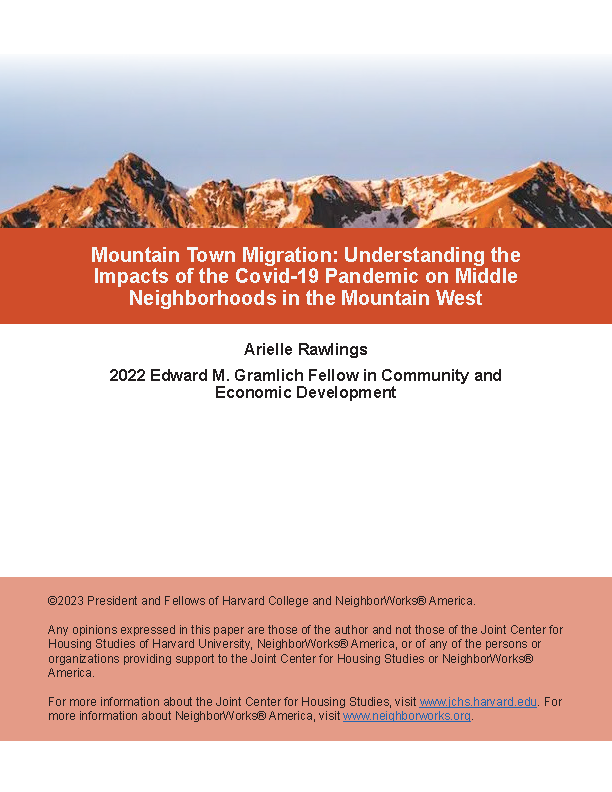Mountain Town Migration: Understanding the Impacts of the Covid-19 Pandemic on Middle Neighborhoods in the Mountain West
Since the beginning of the Covid-19 pandemic in early 2020, we have watched dramatic changes in housing markets, urban life, and residential patterns impact American cities and their neighborhoods in deep and lasting ways. Mountain West cities in particular have experienced an influx of telecommuting and remote workers, new residents pushed out of more expensive cities, and new housing market investment that has increased home prices more rapidly and more dramatically than in any other region of the country. However, often overlooked in conversations about the impact of the Covid-19 pandemic on housing in the Mountain West are middle neighborhoods—areas of cities that are on the edge between economic expansion and disinvestment, neither growing nor declining. Middle neighborhoods have long served as the foundational heart of Mountain West cities, but the lack of community development investment dollars and public policies targeted toward them has led to their slow erosion. With insights from staff members at NeighborWorks Great Falls, NeighborWorks Pocatello, and NeighborWorks Salt Lake City, based on research the author conducted as a Gramlich Fellow at the Center, this paper aims to (1) identify middle neighborhoods within three case study cities, (2) understand the challenges faced by those neighborhoods and how they have been impacted by the Covid-19 pandemic, and (3) highlight how the NeighborWorks organizations are responding. Ultimately, this research will support housing and community development practitioners across the region who are grappling with post-pandemic neighborhood change, helping to illuminate the specific needs of middle neighborhoods, identify the ongoing community development programs that serve (or fail to serve) them, and situate the robust work being done by NeighborWorks organizations in the Mountain West in the context of the middle neighborhood.

